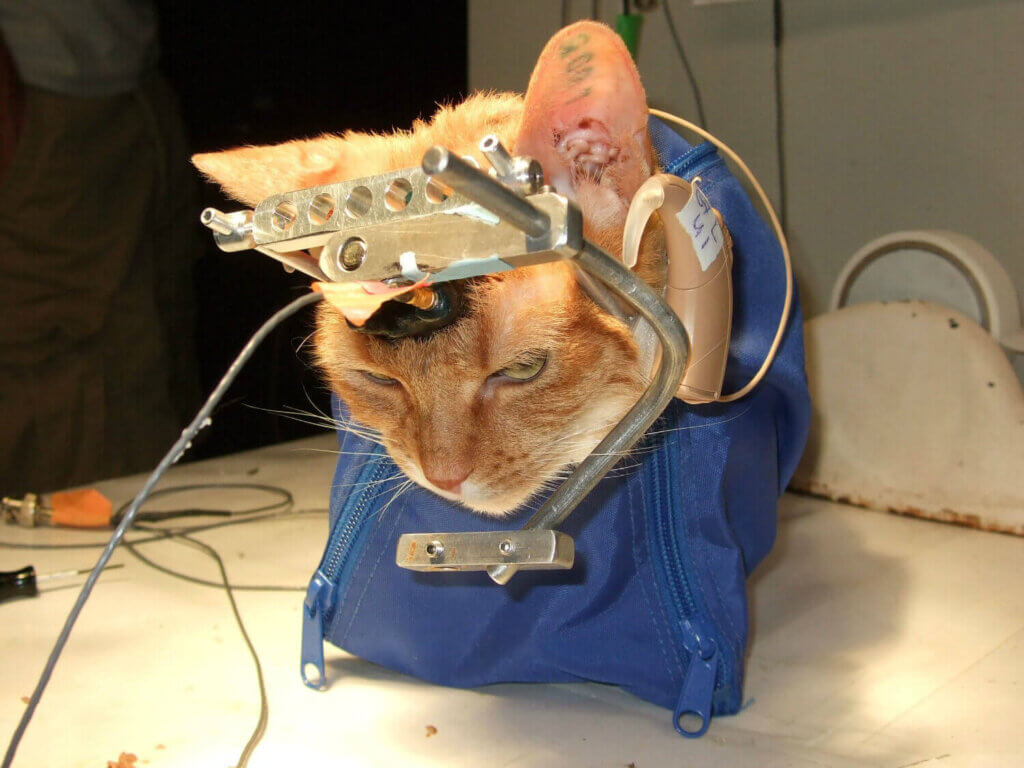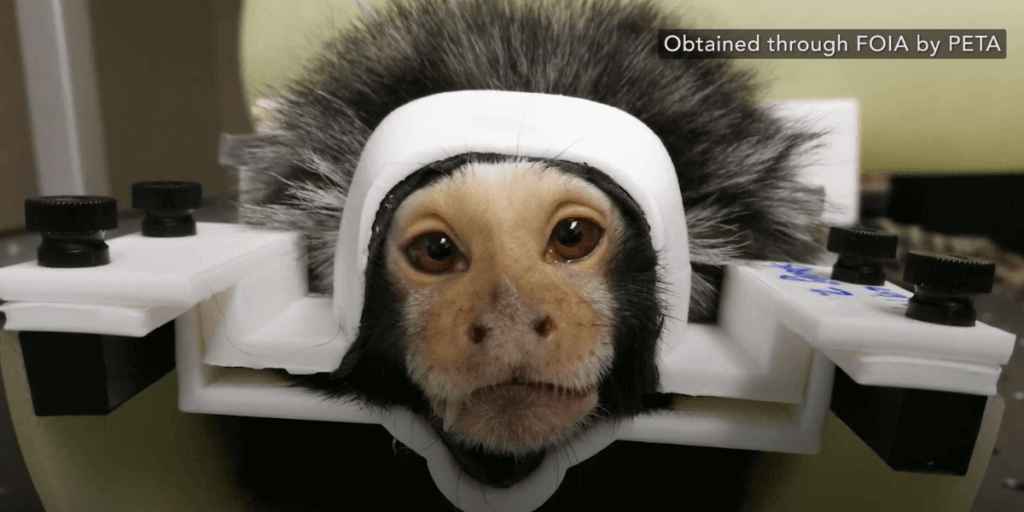Universities Are Wasting Billions of Dollars to Kill Millions of Animals!
It’s time to spill the tea about animal testing. Experimenting on animals does practically nothing to help cure cancer or other deadly illnesses and actually prevents researchers from discovering effective treatments.
And where do many of these experiments on animals take place? In laboratories located on college campuses!
Every year, more than 110 million animals in laboratories across the nation are kept in barren cages, electroshocked, poisoned, burned, socially isolated, cut open, starved, crippled, intentionally inflicted with brain damage, or harmed in nightmarish experiments. They live in fear and agony and are usually killed once the experiments are over.
No experiment, no matter how painful or useless, is against the law—and painkillers and anesthetics are NOT required if the experimenter decides that they may interfere with the study.
Each year, about $20 billion in tax money goes to fund animal experiments. So how is this cruelty justified? Well, it’s an easy way for universities to receive grants and federal funding, no matter how useless the test results are. More than 90% of basic research, most of which involves experiments on animals, fails to lead to treatments for human diseases.
Experimenters who conduct curiosity-based experiments are recognized for how much they publish (i.e., how many animals they torment) rather than the contribution that each study makes toward scientific or medical discoveries.
For example, Margaret Livingstone, an experimenter at Harvard Medical School, has spent her entire 40-year career tormenting animals. Her experiments involve removing infant monkeys from their mothers soon after birth, caging them alone, and either distorting their vision with various devices or never allowing them to see a human or monkey face. She has also sewn infant monkeys’ eyelids shut. In many of her experiments, the monkeys’ heads are immobilized using helmets, chin straps, or bite bars, and some of the animals are killed and dissected. Livingstone has conducted these sensory deprivation experiments on monkeys since 1998 and has collected $32 million in taxpayer funds from NIH to bankroll them—all without producing any cures or treatments for humans.

Animal experimenters often claim they want to find cures and treatments for human illnesses. Those performing “medical experiments” artificially induce symptoms mimicking human illnesses in animals, even though research has proved that they’re poor models for humans.
The results from experiments done on animals are highly unreliable, are nearly always irrelevant to human health, and don’t contribute to medical advancement.
Meanwhile, PETA scientists have developed the Research Modernization Deal, which provides a roadmap for researchers to switch to methods that don’t involve animals—leading to research that’s far more effective!
What You Can Do
- If your university is involved in animal testing, speak up and let it know that you disapprove. If you or someone you know works in your school’s laboratory and you see something wrong, contact us.
- Always buy makeup and household products made by companies that don’t test on animals. Buying these products is super-easy, and you’ll feel good knowing that none of your purchases contributed to an animal’s suffering. To find out if a company conducts or funds cruel tests, check out our database.
- Say no to animal dissection in schools. If you’re in high school or middle school, find out if your school or state has a dissection-choice policy, and if it doesn’t, let us know. We’re here to help you.
- Join peta2 by subscribing to our e-mail list! We’ll keep you up to date with the newest information on cruelty-free products and ways to help stop experiments on animals.
- Share this video with your friends and family to help us expose this useless billion-dollar animal-abusing industry.
Text peta2 to 30933 for ways to help animals, tips on compassionate living, and more!

Terms for automated texts/calls from peta2: http://peta.vg/txt. Text STOP to end, HELP for more info. Msg/data rates may apply. U.S. only.





